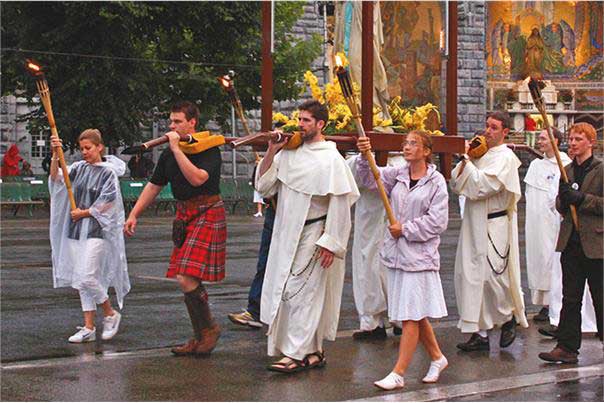You can download it in either English or French from here –Young Adults and Religion.
It explores religious affiliation and practice among 16-29 year-olds in 22 European countries, but features more in-depth discussion of young adults’ religiosity in France and UK.
So what did they find?
- 70% of young Britons identify as having no religion, with 10% identifying as Catholics, 7% as Anglicans, and 6% as Muslims. While 7% of British young adults say they attend religious services on at least a weekly basis, 59% say they never do.
- 99% of Israeli, 83% of Polish, 75% of Lithuanian, and 61% of Irish young adults claim a religious affiliation.
- At the other end of the scale, merely 9% of Czech, 20% of Estonian, 25% of Swedish, and 28% of Dutch young adults say they have a religion.
- 60% of Spanish, Dutch, British, and Belgian young adults, and 70% of Czech ones, never attend religious services.
- Despite widely-reported religious decline in Ireland, 54% of young adults there identify as Catholics. A quarter of young Irish Catholics attend Mass weekly, and over 40% say they pray weekly. These rates are among the highest in Europe.
- Only 2% of Catholic young adults in Belgium, 3% in Hungary and Austria, 5% in Lithuania, 6% in Germany attend weekly Mass. This contrasts sharply with Poland’s Catholic young adults, almost half of whom attend Mass weekly or more.
But this is just Confirmation Bias by non-believers … right?
Actually no.
This comes from a Catholic university and is chiefly intended to inform the Synod of Bishops in Rome in October 2018. The author is …
Stephen Bullivant is Professor of Theology and the Sociology of Religion at St Mary’s University, where he also directs the Benedict XVI Centre for Religion and Society.
This report is not confirming his religious bias at all, and is actually quite the opposite. I suspect for those that do believe this will be quite a shock.
Author comments
Prof Stephen Bullivant commented as follows …
The differences in the religiousness – or, as dominates in many countries, nonreligiousness – of 16-29 year-olds in our sample of European countries is genuinely remarkable. There are, moreover, some genuine surprises in the data.
“For example, Ireland’s young adults are – contrary to recent reports – still remarkably religious, at least by the standards of other highly developed European nations. Meanwhile, countries that had, until quite recently, traditionally strong religious cultures – Lithuania, Belgium, Netherlands, Austria – look to be in serious trouble, in terms of the coming generations.”
Data Source
All data used in their report are taken from the European Social Survey (www.europeansocialsurvey.org). Every two years, beginning in 2002, the ESS administers a detailed set of demographic and attitudinal questions to randomly selected, nationally representative population samples in a signifcant number of European countries.
The analyses they present uses data taken from the two most recent waves: (2014) and (2016). For 16 out of the 22 countries, including France and the UK, they have used combined data from both 2014 and 2016, in order to boost the overall sample size.
No-Religion
Below is a chart showing the degree of non-religion within the various European nations.
How will the Bishops in Rome respond when they read this?
I suspect they will deploy the usual “thoughts and prayers” to sort it all out.
